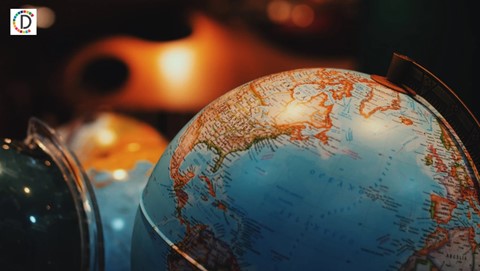RPT-NEWSMAKER-Panama's next president loves Texas football, seeks better U.S. relations

"The United States is our strategic partner, our main strategic partner," Cortizo told Reuters in an interview before results were out on Sunday. "This relationship has to improve."
Outgoing President Juan Carlos Varela's decision to establish formal ties with China and sign infrastructure projects with it caused concern in the United States, which has strong historical links to the Central American country. Critics say some investment from China was agreed upon in an opaque manner. Cortizo said he had held "frank" conversations with the Chinese ambassador.
"I told him: "Welcome to Panama, but the relationship must be one of respect," Cortizo said. Cortizo has said that he would review a high-speed train project with China, and that he wanted such infrastructure projects to use more local workers.
"What we don't want is that a country comes and imposes anything at all upon us," he told Reuters. The United States oversaw construction of the Panama Canal in the early 20th century and it did not formally cede control of the waterway until the end of 1999.
Cortizo has close ties to the United States, and his children hold U.S. passports. After studying in Texas, he worked for the Organization of American States (OAS) in Washington. There he met his future wife, Yazmin Colon, a native of Puerto Rico who was studying literature.
The couple have two children, two grandchildren and two dogs. But the passionate fan of American football who travels north to watch the University of Texas Longhorns, said the United States needed to be more careful in Central America.
It was in Washington's own interest, said Cortizo, to help boost trade and investment in the region, or risk encouraging China to build an even stronger foothold. Despite his close ties to the United States, Cortizo has had his differences with it in the past.
In 2006, he resigned as agriculture minister during the government of President Martin Torrijos, arguing that a U.S. free trade deal would force Panama to ignore its own food health standards. "When he decided to leave the government, it was difficult to understand," said Samuel Lewis, a former vice president and friend of Cortizo.
"But it was a well-informed decision, and that is respectable." 'CONCILIATOR'
Politicians, colleagues, friends and family, all say that Cortizo, 66, who served two terms in Congress from 1994 to 2004 and was president of the legislature from 2000 to 2001, has the skill to assemble teams that work effectively. "Nito Cortizo is a conciliator, and this will be important in the moment in which he has to unite Panamanians to solve the problems we face," said Juan Carlos Navarro, an erstwhile rival within the PRD and a former mayor of Panama City.
Still, political adversaries worry Cortizo may seek to concentrate too much power. Businessman Mario Martinelli, the brother of former President Ricardo Martinelli and a supporter of Cortizo's main rival, called the leader a friend, but said that Panama did not want a system where the president was too dominant.
Cortizo, he said, tended to be "overbearing." The new president will have to contend with the economic and political crisis in Venezuela, which prompted tens of thousands of Venezuelans to seek work in Panama's dollarized economy, creating discontent among Panamanians who fear for their jobs.
A backer of Venezuelan opposition leader Juan Guaido, Cortizo has urged a negotiated resolution to the crisis. Poverty was a dominant issue of the election campaign, and Cortizo says he will improve water supply and healthcare in Central America's fastest-growing economy.
At the same time, he has pledged to clean up government and clamp down on embezzlement of public funds. The next president is due to take office on July 1. (Reporting by Elida Moreno and Stefanie Eschenbacher in Panama City; Editing by Dave Graham, Frank Jack Daniel and Peter Cooney)
(This story has not been edited by Devdiscourse staff and is auto-generated from a syndicated feed.)
- READ MORE ON:
- President of Panama
- Panama Canal
- Panama City
- Sia Partners
- Channel partner
- PAI Partners
- Proven Winners
- Winner Takes It All
- Juan Carlos Varela
- Laurentino ``Nito'' Cortizo
- Panama
- college football fan
- partner
- Election authorities
- US
- Panamanians
- Organization of American States
- Washington
- China
- Mario Martinelli
ALSO READ
UBS weighs Credit Suisse China stake swap with Beijing government, Bloomberg News reports
UBS weighs Credit Suisse China stake swap with Beijing government, Bloomberg News reports
Janet Yellen addresses wide range of issues during trip to China, including TikTok scrutiny
Janet Yellen's Culinary Adventures in China Captivate the Internet
Russia, China to maintain fight against terrorism, Lavrov says










